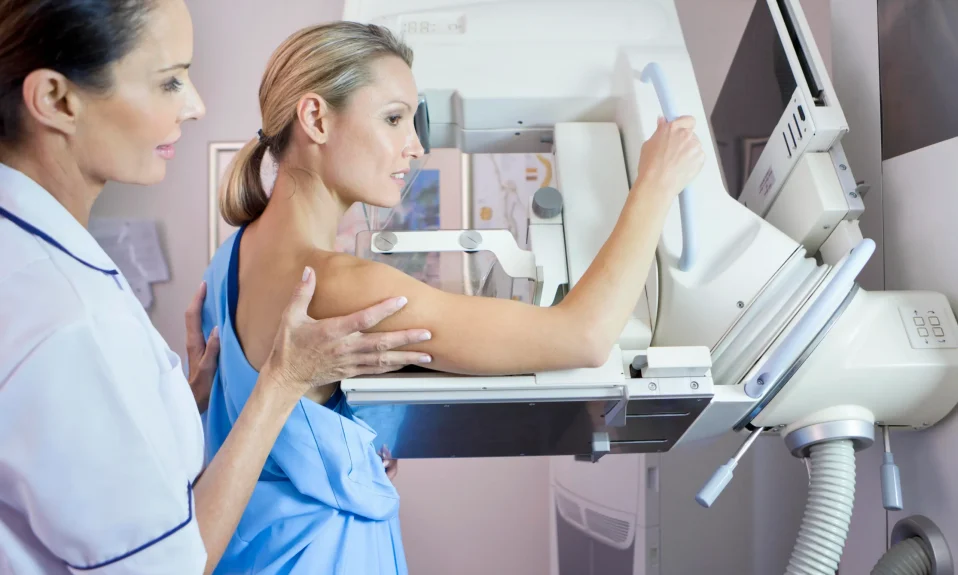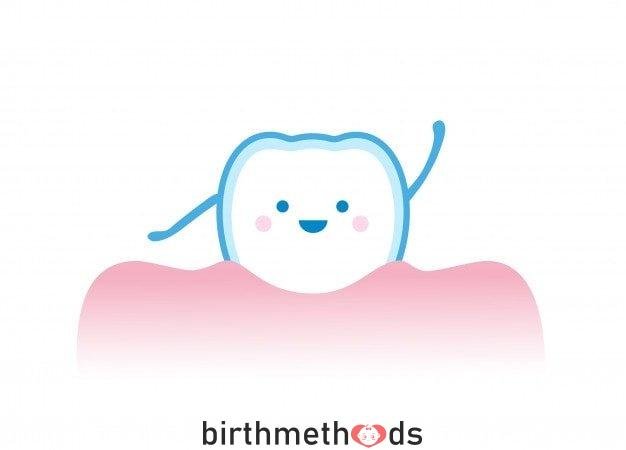Pains and pains during pregnancy are one of the common problems of almost all expectant mothers during pregnancy. Even in the most uneventful pregnancy, there are painful conditions and body aches brought by pregnancy.
Some of these pains and pains you experience during pregnancy stop showing and disappear as pregnancy progresses. The remaining aches and pains can be relieved easily and in a short time. During pregnancy, you may face backache, varicose veins, toothache, headache, heartburn and indigestion, cramps and more. These are common pains and are among the types that can be easily passed with solutions.
What Causes Back Pain During Pregnancy?
- The most obvious cause of back pain during pregnancy is when your back muscles start to strain as your baby gets heavier. As your baby starts to get heavier, your weight shifts to the front of your body and you lean back to keep your balance. Because of this, pressure occurs in your back muscles and this can cause pain, tension and pain.
- During your pregnancy, your abdominal muscles may also weaken. Due to the stretching and weakening of your abdominal muscles, your spine and lower back may not receive the necessary support.
- While pregnancy hormones prepare your body for childbirth, they loosen the connective tissues that hold your bones together, and especially the connective tissues in the pelvic joints, which causes increased back pain.
How to Treat Back Pain During Pregnancy
- Wear low-heeled shoes with a firm sole.
- Get a good mattress to support your back.
- Bend your knees instead of bending over.
- Lie on your side, between your legs and place a pillow under your tummy for extra support.
- Exercise regularly. It does not relieve your pain instantly, but in the long run it strengthens your back muscles and relieves your lower back pain.
- Contact your doctor. He will give you the right exercises to do during your pregnancy.
Causes Cramps During Pregnancy
You may have cramps during pregnancy. Towards the end of pregnancy, you may experience contraction pains or mild cramps in your first month.
About two weeks after the baby is conceived, you may feel a slight cramping with a slight bleeding as the fertilized egg implants into the uterus. This is known as “implantation bleeding”. You may also feel a sharp or muscle spasm-like pain in your pelvis due to the strained ligaments around the uterus. You can read more about round ligament pain in this article.
Towards the end of the second trimester and in the third trimester, you may experience practice contractions known as Braxton Hicks contractions, which can become more intense as you approach labor. Braxton Hicks contractions usually stop when you walk or lie down to rest, but if the contractions get stronger and more frequent, look out for any other signs of labor and contact your doctor if you’re concerned. Braxton Hicks contractions can hurt a little, but they’re perfectly normal. You can think of them just like practice for the big day.
Toothache and Sensitivity During Pregnancy
Around the second trimester, you may feel tenderness in your gums while brushing your teeth, and it may even bleed a little. Pregnancy can cause problems such as gingivitis, a mild form of gum disease. In addition to inflammation, you may experience swelling, redness, and bleeding when brushing your teeth. You should also pay attention to periodontitis, the gum infection caused by your vomiting in the early stages of your pregnancy, which supports teeth, damages soft tissue and bones, and causes tooth wear and decay.
Even if your gums are sensitive, it is important to brush and floss your teeth twice a day. Make an appointment with your dentist if you haven’t seen a dentist in the last six months or if you have a problem such as sensitivity or pain in your gums. In the meantime, you can alleviate some of the discomfort by rinsing your teeth with salt water and replacing your toothbrush with a softer one.
What Causes Headaches During Pregnancy?
With the increase of pregnancy hormones, estrogen and progesterone can trigger chemicals in the brain that cause headaches. While the idea of solving it by taking a pain reliever right away is tempting, you should definitely consult your doctor. Aspirin is not usually recommended during pregnancy, but your doctor may recommend some paracetamol or another medicine to help relieve pain.
How to Treat Headaches During Pregnancy
- Cold compresses
- Try to relax
- Avoid things that have triggered your headaches in the past, such as food or smells
- Sleep more
- Do light exercises
- Stay away from stress
- Eat well
Recommendation: What are the Symptoms of Pregnancy? How Do I Know If I’m Pregnant?
Heartburn and Indigestion in Pregnancy
Especially in your first and third trimesters, your pregnancy hormones relax the valve between your esophagus and stomach, causing your stomach acid to reflux, thus causing heartburn. To prevent heartburn, avoid lying down, ideally for three hours after eating. That’s why it’s a good idea to have your dinner early in the evening, rather than before you go to bed. If you still experience heartburn at night, you can put a headrest between your bed and your base to avoid lying flat; pillow alone will not be effective.
To prevent heartburn, you can also avoid certain foods such as fried, spicy foods, acidic fruits, chocolate, and eat little and often.
Leg Cramps During Pregnancy
Leg cramps are one of the most common pains in the second and third trimesters of pregnancy. These calf and foot muscle contractions usually occur at night and the cause is unclear.
You can prevent cramps during pregnancy by doing a few stretches before going to bed at night, not neglecting your physical activities, and drinking plenty of fluids throughout the day. Comfortable shoes with support will also help. If you wake up with cramps in your legs, you can flex your muscles and relieve pain by bending your feet up and down. Also, taking a warm shower or massaging the muscles can make you feel better.
Lower Abdominal Pain in Pregnancy
As your uterus grows during pregnancy, the ligaments that hold it are also stretched. These ligaments are known as the round ligaments, and as they are stretched, they can cause sharp, brief contractions in the lower abdomen, such as a muscle spasm. Sometimes the pain may not go away easily and can occur on both sides. This pain is nothing to worry about, it’s a kind of “growing pain” that you’ll feel as your baby develops. It just means your baby is growing.
You can prevent and alleviate these pregnancy pains by moving a little slower than usual and not getting up from bed or chair suddenly. Try to avoid sudden movements. Relieving some of the load on your uterus can also reduce the pain and discomfort, so try laying in a warm tub or swimming a little. You can also use a maternity belt or lumbar support band for this.
Writing of Advice: When to Take a Pregnancy Test?
Nerve Compression During Pregnancy
As your baby grows, weight gain and water retention in your body can cause nerve pathways to swell and put pressure on nerves. This results in nerve compression when surrounding tissues such as bones, tendons, muscles, and cartilage put pressure on the nerve. Nerve compression can happen in different parts of the body and feels different depending on the area. For example, carpal tunnel syndrome, which is caused by the compression of the nerve in your wrist, makes your hand and wrist numb, while the compression of a nerve in your spine causes you to feel a sharp pain, as in herniated disc. There is not much you can do other than rest. If your pain does not go away, you can talk to your doctor.
Swelling of Ankles and Feet during Pregnancy
Swelling in the ankles and feet is very common in the last months of pregnancy. This is because your body is holding on to more water and your growing uterus is putting pressure on the veins. Thus, the fluid leaves the blood and moves towards the surrounding tissues, causing swelling. Add to that the pregnancy hormones and you’ll find yourself with swollen feet and ankles. The swelling will go away after delivery, until then you can do the following to make it more comfortable:
- Do not stand up and keep your legs elevated.
- Try to sleep on your left side to take pressure off the veins that bring blood back to the heart.
- Wear compression stockings.
- Wear loose-fitting clothes.
- Soak your feet in cold water.
- Stand or walk in a pool to compress the tissues in your legs.
- Sit down and lift your feet whenever you can.
- Change positions frequently while standing.
- Pay attention to your pregnancy weight – you can read more about weight control during pregnancy here.
- To avoid hemorrhoids, drink plenty of fluids and include fibrous foods in your meals.
~252 ~Be physically active.
~453 ~
Breast Swelling and Tenderness During Pregnancy
In your first trimester, hormone changes can cause your breasts to ache, tender, and swell. Fortunately, this discomfort will probably go away in a few weeks after your body adjusts to the increase in pregnancy hormones.
Varicose Veins and Hemorrhoids During Pregnancy
Some women may have varicose veins during pregnancy. While blood flow from your legs to your pelvis decreases during pregnancy, your overall blood volume increases, which puts pressure on your veins. Progesterone also supports the formation of varicose veins by causing the veins to expand and open..
Varicose veins, which can also be seen in the vagina, cause pain and swelling. Or, they are seen around the anus and in the lower part of the rectum, known as hemorrhoids. Although you cannot control your hormones or circulation during pregnancy, you can reduce the effects of varicose veins by doing the following:
~ 252~Wear compression stockings that do not compress your knees or legs.
When to Go to the Doctor: Abnormal Aches and Pains
Most of the body aches and pains you will experience during pregnancy are perfectly normal, but there are a few other symptoms that may indicate a more serious condition. For example, if you experience upper abdominal or shoulder pain accompanied by a headache, you may need to see your doctor to make sure you don’t have preeclampsia. Or if you have severe abdominal or pelvic pain in your first trimester accompanied by vaginal bleeding, it could be a sign of an ectopic pregnancy. If you suspect any problem, you should consult your doctor for proper advice.
You may probably have more than one aches and pains at some point during your pregnancy, but these are usually completely normal and disappear completely as soon as your baby is born. Pregnancy is the first step of your adventure with your little baby.
Source: Prima
Our previous post Healthy Snacks for Pregnant Women | Snack Suggestions for Pregnant Women in our article information about.














